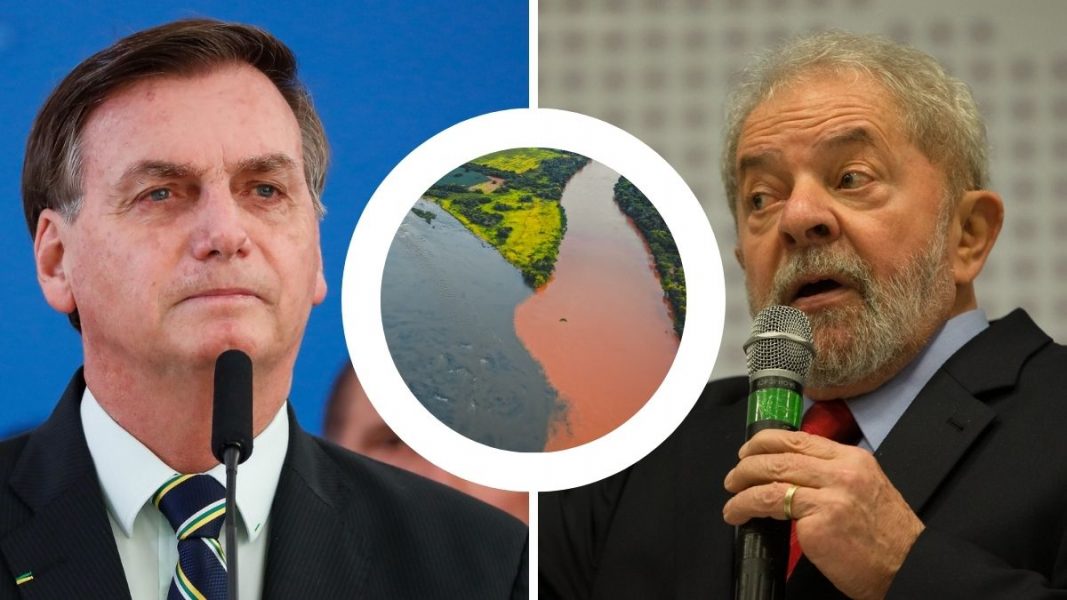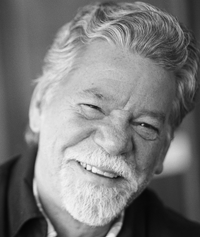
Just a few months ago, a new book by French social scientist and CNRS researcher Guillaume Blanc (Proteger et destruire la nature sous les tropiques, XX-XXI siécles, Paris: Flammarion, 2022), who has devoted himself to the study of imperial “ecologist” policies, which turned large territories in Africa and Asia into colonies. I had addressed the subject in a previous book(L’invention du colonialism vert. Paris: Flammarion, 2020). In both publications, Blanc discusses how a “colonialist ecology” has developed at the expense of Africans. In Protect and destroy reviews the global history of nature conservation, to show in a concrete scenario, how the policies applied by colonialist governments in their colonies, and even after decolonization, obey a continuous “professionalization of nature”, by “experts” who act in agreement with the governments of the colonies to exploit nature, for the economic benefit of international and local elites, and to the detriment of the occupants of those spaces. To that end, they created the myth that the protection of the forests was done to safeguard them from the destruction committed by their own occupants. Throughout time, during and after the colonial period, the same thing continued to be done. At the Arusha Conference in Thailand in 1961, the World Wide Fund for Nature (WWF) was created to finance the “experts” who would advise African governments on the implementation of nature conservation policies. Blanc shows that nothing has changed, and that there has been in the post-colonial period a continuity of the policies of colonization times, always at the expense of the interests of local communities. The “experts” of today are the same as before and their discourse has been adjusted to the changing interests of the elite. Between 1900 and 1930, hunting reserves were created for tourists, while local transgressors with illegal practices were sanctioned and expropriated. From 1930 to 1980, national parks were created, and from 1980 onwards, conservation was promoted in some areas rich in biodiversity to cater to tourists. In other words, protected areas were financed for tourism purposes, and at the expense of the well-being of local communities, whose rights as occupants of the space in which they lived were displaced or restricted. Always justifying it with the myth that if these populations were left to act freely, they would end up destroying their own habitat. These policies are dictated by “experts” belonging to international organizations such as UNESCO or the IUCN (International Union for Conservation of Nature), who do not speak the language of the local populations and have no in-depth knowledge of the areas in which they operate.
The policies denounced by Blanc apply nature protection actions, sacrificing the communities of the interior, i.e. the local communities, for the benefit of the communities of the exterior. And there is a dissociation between those who claim to protect nature, without knowing it and without living in it, and those accused of destroying it, but who live in it and understand that it is necessary to protect it to guarantee their own survival.
Something similar occurs in the Amazon. But with several aggravating factors. The Amazon is a vast basinwith almost 7 million km2 , which has become a pole of attraction for colonizers who practice extractive economic activities (rubberThe company’s operations include: timber, mining, oil, agriculture, livestock, fishingThe country has been increasingly becoming an area of illicit crops, taking advantage of its cross-border geographic location). The safeguarding of this immense basin depends on the decisions of eight governments that lack environmentally friendly policies and jeopardize the integrity of the basin, without much concern for the enormous importance of the Amazon, its forests and rivers, for the regional and even global climate. Most of the governments with Amazonian territories are populist and short-termist governments that seek, in order to fulfill their electoral promises, to open this immense “empty” space to colonization and the exploitation of its natural resources for the benefit of the interests of a voracious multinational capitalism, which occupies and deforests it to plant soybeans or produce beef in large cattle ranches, using the labor of its impoverished populations. The fate of what happens in the Amazon depends, to a large extent, on the decisions made by four governments (Brazil, Peru, Colombia and Bolivia), which are responsible for more than 90% of the Amazonian territory. Of these, the most important in terms of extension is Brazil, which occupies more than 60% of the total basin.
The present and future of the basin, which is considered the first lung of the planet, depends on what happens in Brazil and its government policies, together with the Congo River basin in Africa, with more than 3,700,000 km2, which is considered the second most important lung, both located in the tropics, near the equator, and flowing into the Atlantic Ocean. Its importance as a reservoir of CO2 and source of continental fresh water is crucial for the world’s climate, and the environmental, ecological and cultural balance, due to its rich biological and cultural diversity of the groups that inhabit it. Both basins are very important for the planet.
The second round of Brazil’s presidential elections, which took place on Sunday, October 30, pitted incumbent Jair Bolsonaro against Luiz Inacio Lula da Silva. Two conceptions of politics were confronting each other: the extreme right at the head of an authoritarian populist government, of democratic origin, represented by Bolsonaro, a conservative military man, supported by the economic elite and the powerful group of the evangelical church, the Universal Church of the Kingdom of God, and Lula, an experienced socialist trade unionist politician, who presides over the Workers’ Party and who had been president of the republic twice, between 2003 and 2011. One, Bolsonaro, was called the “myth”, who sympathized with authoritarians Donald Trump, Hungary’s Viktor Orban and Vladimir Putin. The other was called the Phoenix of Brazil, as he rose from the ashes: treated as a corrupt man, for his involvement in the business of Odebrecht, a large Brazilian company, created in 1944 in Bahia, which became the largest bribery company for the construction of public works in Latin America, corrupting several presidents. Accused in the so-called Operation Car Wash, and later exonerated of all charges against him, Lula spent 580 days in prison. From there he left in November 2019 to begin his return to the presidency. And he succeeded, with 50.9% of votes out of more than 156 million voters. His conquest of the presidency, but not of “power”, was won with a motley coalition of nine political parties ranging from the moderate right, the left and even conservative elements that had previously opposed him, such as his rival, and now vice-president Geraldo Alckmin. The results of that presidential election were crucial for the future of Brazil, and also for South America, due to Brazil’s strong influence. Brazil is the largest, most populous and industrialized country in Latin America, and it is also the largest Amazonian country.
The election pitted two policy conceptions and their operational models against each other, but it also pitted two conceptions of economic and social development related to the Amazon against each other.
Lula’s victory was possible thanks to the support of Brazil’s Northeast, which is highly populated but characterized by widespread poverty and great social and economic inequalities. Brazil has an area of 8.5 million km2, divided into 27 states, which are grouped into five regions: South, Southeast, Center-West, North and Northeast. In the Northeast, where the state of Bahia, with 11.2 million inhabitants, is located, Lula obtained 72% of the vote. In the entire Northeast, a region of poor, blacks, mestizos and Catholics, Lula won with 69.32% of the votes, against 30.68% for Bolsonaro, who won widely in the Southeast and in the South of the country. Nevertheless, Lula’s triumph comes in a country divided by violence, political polarization and an uncertain economic situation.
Environmentalists continuously complained about Bolsonaro’s lax and permissive policy in the Amazon, which defended the interests of agribusiness, allowing open colonization and increasing deforestation processes, favorable to the actions of national and international capital, the criminal abandonment of Amazonian indigenous communities, and their spokespersons, and the safeguarding of biodiversity, the weakening of public bodies created for the defense of indigenous interests and the obstruction of the action of national and international private NGOs. One of Lula’s campaign slogans was, in addition to achieving peace and unification of a country divided by extreme political rivalry, to propose the rescue and safeguarding of the battered Brazilian Amazon. Now, from Brazil’s presidency, his influence and experience can be key, using multilateralism (BRICS and Mercosur) to achieve political adhesion from other American presidents such as Colombia, Peru, Bolivia, Ecuador, Venezuela, Argentina, Chile and Mexico. His electoral triumph was warmly welcomed by the European Union of 27, the United States and even China. Now the hopes of the world’s environmentalists are pinned on Lula to be the leader of the vast and important Amazon basin, so valuable, along with the Congo River basin, for the environmental and ecological balance of the planet. What the scientist Amory Lovins, the Albert Einstein of energy efficiency, calls “applied hope”, that is, a strategy of action that consists of doing things to achieve a world that is really worth “hoping for”, and not falling into despair, using an integral conception of environmental policy, optimizing the entire system involved, and not limiting oneself to optimizing each component independently.
In his first speech as the winner of the election, Lula promised to fight against growing poverty, to reposition Brazil politically and economically in the international arena and to reestablish respect for the environment, especially in the Amazon.

Dr. Rafael Cartay is a Venezuelan economist, historian, and writer best known for his extensive work in gastronomy, and has received the National Nutrition Award, Gourmand World Cookbook Award, Best Kitchen Dictionary, and The Great Gold Fork. He began his research on the Amazon in 2014 and lived in Iquitos during 2015, where he wrote The Peruvian Amazon Table (2016), the Dictionary of Food and Cuisine of the Amazon Basin (2020), and the online portal delAmazonas.com, of which he is co-founder and main writer. Books by Rafael Cartay can be found on Amazon.com
This post is also available in:
![]() Español (Spanish)
Español (Spanish)
